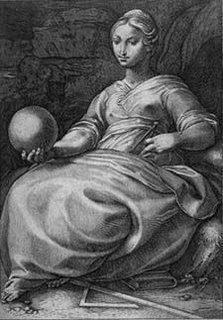Goethe's Nose
Goethe, you see, German poet extraordinaire, hero of the nation, flower of the language, child of the soil, loved roses. He had this oh so romantic idea that in a world of regimentation, a poet could actually add something, that it was actually possible to see the world as a poem, that things rhymed.

Goethe’s Spineless Nose
(A rose by any other name would smell as sweet. Shakespeare said that.)
So, Goethe lived in a garden house given to him in 1776 by Duke Carl August, to lure him into keeping close to the court.
Roses, were, it seems, his special love as well.
And what did Goethe do with these roses? Well, he classified them. That was the age of Linnaeus, the Great Classifier.
Goethe classified them as poems. It was a sort of code. A sort of crossword puzzle cipher. Spy stuff. Shh. Hush hush.
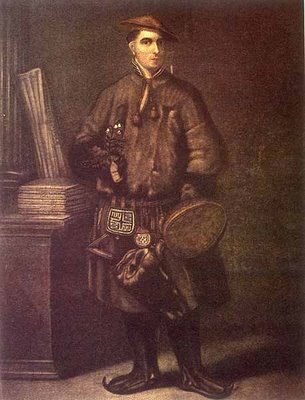
This is not Goethe!
This is Carl Linnaeus (1707-1778), dressed for the hard work of classifying
all living things into a hierarchy, like courtiers around Louis XIV.
Here’s Goethe, writing in 1798, in his poem "Song of the Imprisoned Count." Think of it as the lamentations of a courtier, hoping to get the ear of the king. Think of it as Goethe playing Romeo below Juliet’s window. Think of it as a poor soul lamenting to its God.
Think of it as a poor German count stirring his people up for rebellion.
You don’t make a great nation out of a punch of principalities just any old whichway, after all. For that, you need good propaganda. So, heeeeeeeeeeeere’s Wolfgang!:
For that, you need a poet.

This is Not Goethe.
These are Courtiers Jockeying For Position in Versailles
So, Goethe and Linnaeus rhymed the world.
Well, they didn’t exactly think of it first.
That was probably Louis XIV. He’s the one who commissioned the palace of Versailles. He’s the one who had the gardens, the Tuilleries, laid out like a gothic church.

Courtiers Assaulting Police Assaulting Courtiers in Quebec
Thursday, October 27, 2005
See. This is what you get when you stop rhyming in your poetry.
Unlike the church, which relied on stained glass windows to purify the light of the sun and the moon, so that, through the act of the mind they became the true, original light of God, which flooded the dark stone crypt of the Church, and, by extension, our lives in this vale of tears, the Tuilleries were in the blinding, shall we say radioactive, light of day.

This is Not Goethe
This is Canadian Prime Minister Jean Cretien
Telling the Gomery Inquiry that he Did not Dispense Favours to Gain Favours
Yessirree, to Louis XIV, you didn’t need astrologers to read the Heavens. Civilization had come a long way since those early days. You didn’t need gloomy cathedrals, big stone crypts, lit with light shining through the stories of Heaven. Pshaw.
The sun and moon were right there, without intermediary.
Well, without intermediary other than the formality of a garden set aside to rhyme the world into order.
Witness:
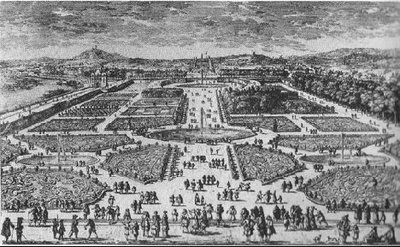
The Tuilleries, or
A Poem A Reader Could Walk Within
It kind of looks like a landing pad for God.
No wonder Goethe tried to suggest that life, country life, life as common people lived it, physical life as they experienced it, had within it the potential for art as well. So, he wrote a lot of poems about roses.

Angels of God Assisting Islamic
Penitent in the Subtleties
of Rhyming Verse
Oh, yes, rhyme was everywhere in Goethe’s day. Old lead presses just did a most god-awful job of translating it, that’s all. Like this:

This is Goethe
Turning Out Roses by Hand Crank
Well, okay, okay: his soul, anyway
What started as a pretty little poem about a pretty little peasant girl, doesn’t waste much time in becoming a nasty little piece of evidence for why rhyming poetry had a hard time for a century.
And all Goethe wanted to do was write a pious little tract about Mary, Mother of Christ. Christ.
He repeated the theme in his Christmas song, Es ist ein' Ros' entsprungen, which he wrote for none other than the King of Rock and Roll himself, the pant-suited glitter king of Graceland, Elvis Presley.
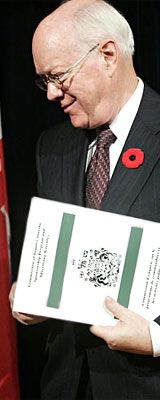
This is Not Elvis
This is Justice Gomery Smiling Down Benificently at Prime Minister Jean Cretien
He looks a bit like God in Time Bandits, doesn’t he.
The rose, you see, was a tidy little Christian symbol for a martyr, and what better religion for martyrs than Christianity?
Or Elvis?

This is Not Elvis
This is Ralph Richardson Playing God in Time Bandits.
He got his first break playing in The Ghoul in 1933.
Here he’s telling the little guys to pick up all those pieces of evil.
You know, the red bloom on your chest from a fatal wound, the fleetness of life, the beauty of the next world, the convenience of MP3, the transitory nature of fame, all that holy bliss.
All this:

Early Sketch for the Tuilleries Gardens
The Rose Window of Notre Dame de Paris

Erato Looks into Her Crystal Ball
In a world of arcs and circles cut by one straight black stick.
Note how Erato’s wearing the Rose Window.
Some things never change.
Painting by John William Waterhouse
Or do they?

Prophetic Disks at the Tuilleries
I wonder if Copernicus knew it was going to turn out like this when he declared that the earth was not at the centre of the universe? That the pattern of continents on the earth did not rhyme with the patterns of the stars? That it wasn’t, well, you know, wasn’t so pretty?
Heck, I wonder if Columbus knew it was going to come to this, when he proved the world was round by sailing around it to get to Jakarta, and wound up in Trinidad instead?
I wonder if Erato knew this.
I wonder if Goethe’s happy rose-sniffing peasants in Russia knew about this when they told the capitalists where to go in 1917:
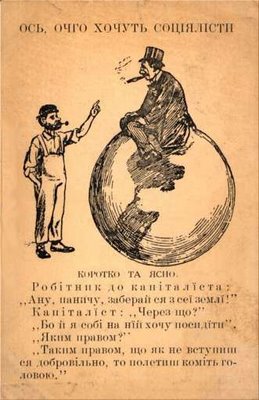
"Captitalist, get off!"
Old Russian Postcard, with Capitalist
Squatting Right on Hudson’s Bay,
drawn by Gerardus Mercator on Erato’s Magic Sphere
Note that the worker’s pipe has not even been lit.
Oh, the trouble you can get into when you don’t share a light!
I wonder if they all knew that when the world was flat, Erato’s crystal ball was a sphere; now that the world is a sphere, the crystal ball is a disk (flat), telling us not to ride our bikes and telling dogs taking themselves for walks not to bother, actually. Actually. Telling us to go alone, and to go on foot. Actually.

Marine in the Vietnamese Version of the Tuilleries, Throwing Rocks
What goes around, comes around.
I mean, look what’s happened to Mary. Here she is, having transformed herself into not one but four Vietnamese nuns, waving good-bye: the colonized, waving good-bye to their recolonizers, after their colonizers were given the heave-ho, knowing they’re now going to be left behind to be recolonized by themselves.

Vietnamese Nuns Waving Good-bye to the Tuilleries,
As it Prepares to Fly Back to the United States.
And that’s where poetry has brought us in our time.

Poet dressing up in period costume to try to get a little respect.
Hypocrite Lecteur: Is This Goethe?
Hypocrite Auteur: Yes, this is Goethe.

Erato’s Found Poem. She calls it: PTA. Source.
And now there's this!

Canadian Poet Carmine Starnino Doing his Goethe Impression
in The New Canon: An Anthology of Canadian Poetry
Erato: Et tu, Brutus!
Ohhhh.
Next Week: Mark Anthony Speaks to the Romans

(A rose by any other name would smell as sweet. Shakespeare said that.)
So, Goethe lived in a garden house given to him in 1776 by Duke Carl August, to lure him into keeping close to the court.
Roses, were, it seems, his special love as well.
And what did Goethe do with these roses? Well, he classified them. That was the age of Linnaeus, the Great Classifier.
Goethe classified them as poems. It was a sort of code. A sort of crossword puzzle cipher. Spy stuff. Shh. Hush hush.

This is Carl Linnaeus (1707-1778), dressed for the hard work of classifying
all living things into a hierarchy, like courtiers around Louis XIV.
Here’s Goethe, writing in 1798, in his poem "Song of the Imprisoned Count." Think of it as the lamentations of a courtier, hoping to get the ear of the king. Think of it as Goethe playing Romeo below Juliet’s window. Think of it as a poor soul lamenting to its God.
Think of it as a poor German count stirring his people up for rebellion.
You don’t make a great nation out of a punch of principalities just any old whichway, after all. For that, you need good propaganda. So, heeeeeeeeeeeere’s Wolfgang!:
I KNOW a flower of beauty rare,
Ah, how I hold it dear!
To seek it I would fain repair,
Were I not prison'd here.
My sorrow sore oppresses me,
For when I was at liberty,
I had it close beside me.
Though from this castle's walls so steep
I cast mine eyes around,
And gaze oft from the lofty keep,
The flower can not be found.
Whoe'er would bring it to my sight,
Whether a vassal he, or knight,
My dearest friend I'd deem him.
For that, you need a poet.

These are Courtiers Jockeying For Position in Versailles
So, Goethe and Linnaeus rhymed the world.
Well, they didn’t exactly think of it first.
That was probably Louis XIV. He’s the one who commissioned the palace of Versailles. He’s the one who had the gardens, the Tuilleries, laid out like a gothic church.

Thursday, October 27, 2005
300 people demanded free education. Some waved anarchist black flags and threw paint-bombs and rocks at police. Police made no arrests.
See. This is what you get when you stop rhyming in your poetry.
Unlike the church, which relied on stained glass windows to purify the light of the sun and the moon, so that, through the act of the mind they became the true, original light of God, which flooded the dark stone crypt of the Church, and, by extension, our lives in this vale of tears, the Tuilleries were in the blinding, shall we say radioactive, light of day.

This is Canadian Prime Minister Jean Cretien
Telling the Gomery Inquiry that he Did not Dispense Favours to Gain Favours
Yessirree, to Louis XIV, you didn’t need astrologers to read the Heavens. Civilization had come a long way since those early days. You didn’t need gloomy cathedrals, big stone crypts, lit with light shining through the stories of Heaven. Pshaw.
The sun and moon were right there, without intermediary.
Well, without intermediary other than the formality of a garden set aside to rhyme the world into order.
Witness:

A Poem A Reader Could Walk Within
It kind of looks like a landing pad for God.
Actually, it kind of looks like one of the magical rooms of an alchemist: perfectly aligned to focus the thought of a perfect God.
No wonder Goethe tried to suggest that life, country life, life as common people lived it, physical life as they experienced it, had within it the potential for art as well. So, he wrote a lot of poems about roses.

Penitent in the Subtleties
of Rhyming Verse
Oh, yes, rhyme was everywhere in Goethe’s day. Old lead presses just did a most god-awful job of translating it, that’s all. Like this:
Saw a youth the morning rose
Blooming in the heather,
As her dainty leaves unclose,
Straight to gaze on her he goes,
‘Twas in summer weather.
Rose, thou pretty rose so red,
Rose among the heather.
Rose Among the Heather, by Johann Wolfgang von Goethe
as translated by hand crank.

Turning Out Roses by Hand Crank
Well, okay, okay: his soul, anyway
What started as a pretty little poem about a pretty little peasant girl, doesn’t waste much time in becoming a nasty little piece of evidence for why rhyming poetry had a hard time for a century.
And all Goethe wanted to do was write a pious little tract about Mary, Mother of Christ. Christ.
He repeated the theme in his Christmas song, Es ist ein' Ros' entsprungen, which he wrote for none other than the King of Rock and Roll himself, the pant-suited glitter king of Graceland, Elvis Presley.

This is Justice Gomery Smiling Down Benificently at Prime Minister Jean Cretien
He looks a bit like God in Time Bandits, doesn’t he.
The rose, you see, was a tidy little Christian symbol for a martyr, and what better religion for martyrs than Christianity?
Or Elvis?

This is Ralph Richardson Playing God in Time Bandits.
He got his first break playing in The Ghoul in 1933.
Here he’s telling the little guys to pick up all those pieces of evil.
You know, the red bloom on your chest from a fatal wound, the fleetness of life, the beauty of the next world, the convenience of MP3, the transitory nature of fame, all that holy bliss.
All this:

The Rose Window of Notre Dame de Paris
Eve: So, what happened after poetry left off trying to rhyme the world?
Erato, Muse of Poetry: Honey, what makes you think poetry left off trying to rhyme the world?
Eve: Well, I thought Harold said it did. Oh, Erato, I’m in a whirl.
Harold: I thought I said so, too, girl.
Erato: Not at all. I’ve been around. I’ve looked in that ball. I’ve seen it all.
Harold: Oh, Muse, tell us if it is your will.
Erato: I will.

In a world of arcs and circles cut by one straight black stick.
Note how Erato’s wearing the Rose Window.
Some things never change.
Painting by John William Waterhouse
Or do they?

I wonder if Copernicus knew it was going to turn out like this when he declared that the earth was not at the centre of the universe? That the pattern of continents on the earth did not rhyme with the patterns of the stars? That it wasn’t, well, you know, wasn’t so pretty?
Heck, I wonder if Columbus knew it was going to come to this, when he proved the world was round by sailing around it to get to Jakarta, and wound up in Trinidad instead?
I wonder if Erato knew this.
I wonder if Goethe’s happy rose-sniffing peasants in Russia knew about this when they told the capitalists where to go in 1917:

Old Russian Postcard, with Capitalist
Squatting Right on Hudson’s Bay,
drawn by Gerardus Mercator on Erato’s Magic Sphere
Note that the worker’s pipe has not even been lit.
Oh, the trouble you can get into when you don’t share a light!
I wonder if they all knew that when the world was flat, Erato’s crystal ball was a sphere; now that the world is a sphere, the crystal ball is a disk (flat), telling us not to ride our bikes and telling dogs taking themselves for walks not to bother, actually. Actually. Telling us to go alone, and to go on foot. Actually.
Eve: And did people listen?
Adam: No, they did not listen. Aside: That was my mistake, too.
Harold: I know what you mean. Here are three U.S. Marines in Vietnam. By the looks of it, the marine in the back has just been shot. Of the other two, one is throwing Erato’s lucky ball back at the North Vietnamese Army. No doubt, he’s hoping it’s going to blow up in their faces, but if you ask me, he’s suddenly the only one standing up there.
Erato: Why, look. He’s standing up there all alone.

What goes around, comes around.
I mean, look what’s happened to Mary. Here she is, having transformed herself into not one but four Vietnamese nuns, waving good-bye: the colonized, waving good-bye to their recolonizers, after their colonizers were given the heave-ho, knowing they’re now going to be left behind to be recolonized by themselves.
Erato: Alone.
Harold: Alone.

As it Prepares to Fly Back to the United States.
And that’s where poetry has brought us in our time.

Hypocrite Lecteur: Is This Goethe?
Hypocrite Auteur: Yes, this is Goethe.
Harold: I’ve grown a little hard of hearing. What’s Goethe saying, Eve?
Eve: Tweet. I think he’s saying Tweet.
Adam: Oh, let me. I’ve got this new scanner. May I?
Erato: I liked gestettners myself.

Erato: That rhythm, you know. (Pause) You do know, don’t you?
Adam and Eve (together): We know!
And now there's this!

in The New Canon: An Anthology of Canadian Poetry
Erato: Et tu, Brutus!
Eve: That’s what poetry has come to?
Harold: Yes.
Adam: But what does it mean?
Erato: Meaning is over-rated.
Adam: Oh.
Eve: Oh!
Ohhhh.
Next Week: Mark Anthony Speaks to the Romans





